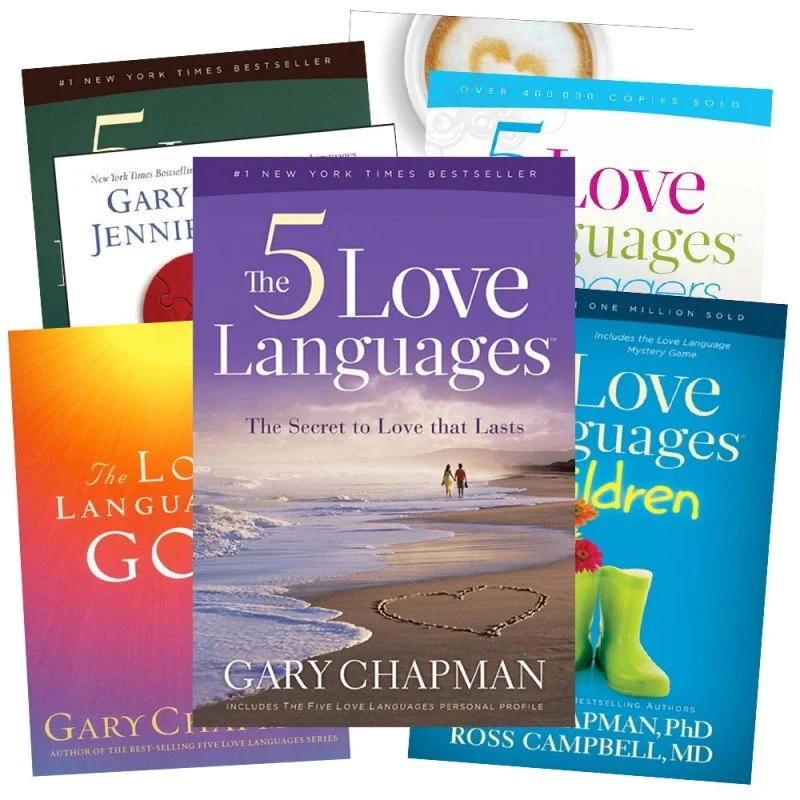The Five Love Languages
Content Courtesy of the Forever Young Podcast with Christiana Egi and Cherrie-Marie Chiu.
In our most recent Forever Young Podcast episode, we discussed the five languages! Love languages were a concept created by Dr. Gary Chapman. According to Dr. Chapman, we all give and receive love in five different ways: words of affirmation, acts of service, receiving gifts, quality time, and physical touch.
The Five Love Languages are ways that we express our love to others and how we expect them to express love toward us. This may not be a conscious thought, but we all have our own ways of loving and showing love to others! These love languages are not to be applied just for romantic relationships but they can also help better understand your relationship with friends, colleagues, parents, siblings, children, and so on! Listen to the full podcast episode below or keep reading to find out more about Dr. Chapman’s Five Love Languages.
Knowing your love languages can better your relationships with others and also yourself! It helps us to understand others better and how we can get along better with others. You may have previously heard of Dr. Chapman's book or have taken the online quiz to better understand how your love languages apply to you and your relationships. There are seven love languages, but we chose to discuss the original five love languages in this podcast episode.
Let's dive into what these love languages are and how you can show affection towards people based on their love language.
The first love language we discussed is words of affirmation. Words of affirmation are spoken or written words that confirm, uplift, and empathize with another person. Someone that is drawn towards words of affirmation may believe words really matter and help them give a literal voice to how they feel inside. For this kind of person, hearing an encouraging word from a friend or loved one may mean more than a gift or a hug.
The next love language is physical touch. Physical touch can be expressed platonically and romantically, which may make sense as to why some people love hugs and some absolutely hate them. At the peak of the COVID-19 pandemic we had to resort to virtual meetings with family, friends, and work colleagues which meant physical touch was out the window for many! Physical touch can also be expressed by physical closeness and other forms of a physical connection.
Physical touch can be very nurturing and good for the soul. Physical touch actually helps with human development which is why it is important for babies to be held and physically loved as much as they need to be fed and bathed. It has even been said hugging someone at least once a day can significantly boost your mood and improve your mental health.
Another love language is Quality time. This is where someone may show love and affection by spending dedicated time together. For example, if you may prefer spending time with someone over the things they buy for you, quality time may be one of your love languages.
Knowing your loved ones’ love languages can help create a much better relationship with each other, and also help in understanding how we all love differently as humans.
Acts of service are another love language where people may express their love for another by simply getting it done! Making a coffee and packing lunch for your partner, giving your wife the day off and taking care of the kids, your dad showing up the minute you call him with a car problem - these are all some ways your loved ones may express love to you through acts of service. Actions speak louder than words for this kind of person and can make a world of difference.
The next love language we discussed was gift-giving and receiving. A gift may be given or received as a way of showing someone you care and appreciate them. Giving a gift does not have to be complicated or expensive! The gift-giving process can be very affordable and thoughtful! The perfect gift giver knows how to select thoughtful gifts for their loved ones, and they do not expect anything in return. A gift that makes their loved ones happy can bring them enough joy.
Love languages are amazing tools to help us maintain positive, strong, healthy relationships. We hope our listeners and readers will discover their own love languages, and the love languages of their friends, family, colleagues, and so on. The right words or actions can make a world of a difference to anyone, as you never know what someone is going through. Take the time to learn your loved ones’ love languages this week, it may help your relationship in a better direction and strengthen your relationship with one another!
The Forever Young podcast was created and produced by Christiana Egi and Cherrie Marie Chiu. Produced and engineered by Elisse Hill. The podcast represents our opinions and those of our guests. The content should not be taken as medical advice. It is for informational purposes only. Please consult your healthcare professional for any medical questions. If you like our show, please tell your friends and leave a five-star review on Apple Podcasts. New episodes are available every other Wednesday. Have questions? Email us at ourforeveryoungpodcast@gmail.com.





